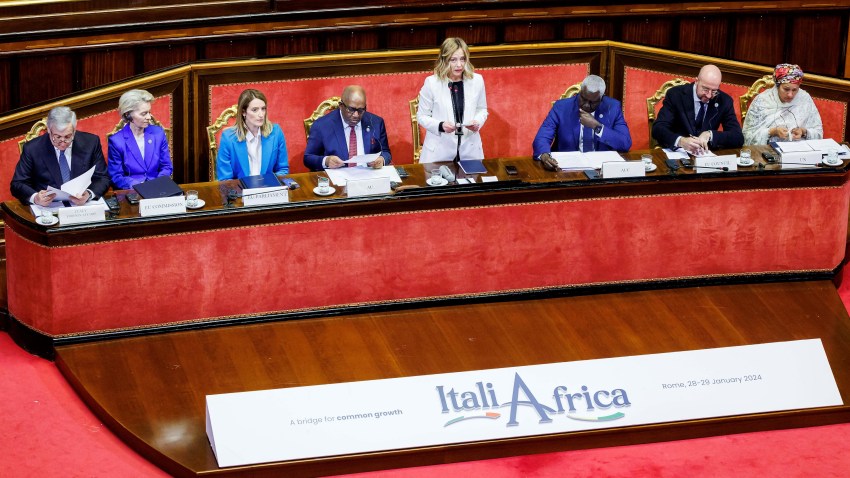The Italian government’s decision this year to elevate its annual Italy-Africa conference to the status of a summit, with invitations extended to heads of state and government, transcended mere symbolism. Behind the diplomatic gestures lay a deliberate intent: to convey a message of mutually beneficial cooperation.
Prime Minister Giorgia Meloni used the Jan. 28-29 gathering—dubbed “A Bridge for Common Growth”—to strategically frame her government’s approach to Africa, acknowledging the vibrant economic, political, social and cultural transformations occurring across numerous African nations. Meloni’s unequivocal call for a new partnership of equals underscored Italy’s commitment to fostering development in Africa. However, the inherent contradictions of the event were not entirely concealed, revealing challenges that will necessitate nuanced approaches to resolve.
At the summit, Meloni delivered her address to a distinguished assembly comprising representatives from 46 African nations, including heads of state and government, national ministers and delegates from prominent international organizations. In her speech, Meloni articulated her ambitions for establishing a new paradigm of cooperation emphasizing Italy’s role as a bridge between Africa and Europe, distinct from the “predatory temptations” and “charity-like” approach to Africa from the past. She called that exploitative model ill-suited to Africa’s “extraordinary development potential,” while adding that Italy “wants to be the standard-bearer” for the new and mutually beneficial relationship.

